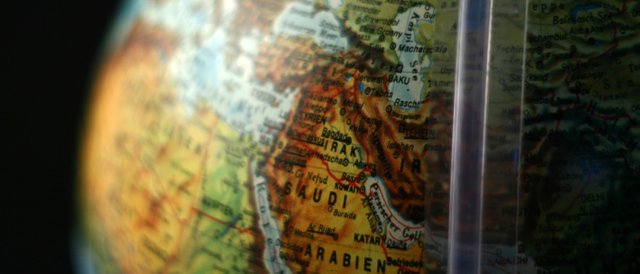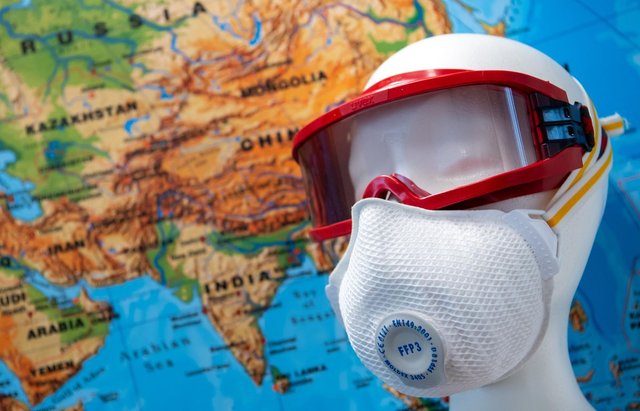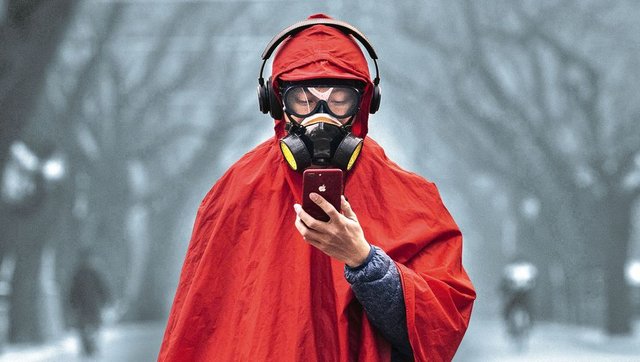CORONAVIRUS AND GLOBANIZATION - HEALTH SOCIOLOGY

"CORONAVIRUS Moves Around Because of Globalization, the Compression of time and space, which drives the world to a Common Destiny, Not Only in Health, but all Sphere of Life"
The quick-fire coronavirus spread and the response of different countries to it, not only highlight immediate concerns about public health, but also have a significant impact on the evolving world order and the values that underpin it. While further challenging globalization, the crisis also holds out hope for its resurgence.
The epidemic is an additional blow to the vision and practices of the globalization process that is already under strain. The two world powers that led globalization – the US and China – turned to limiting the scope of their cooperation and exchange of goods, people, and even ideas. In early March, the US decreased the number of visas granted to Chinese journalists. In many places, citizens have elected leaders more concerned with domestic values than with a commitment to a global visions and institutions; and the European Union, a crowning achievement of globalization in both practice and values, is creaking and weakening.

The coronavirus event provides globalization with additional practical and symbolic challenges. So far, infection has been reported in over 85 countries, and its spread will slow a global economy which is heavily dependent on international production and supply chains. The number of flights between countries, perhaps the most immediate personal experience of globalization, is quickly shrinking, with significant repercussions expected to outlast the epidemic. The outbreak hones the understanding that along with the free passage of people and goods between countries, globalization also can bring with it the spread of disease. Sadly, in the public health context, the limitations to globalization could be perceived as a positive development. Research examining the effects of the global flu epidemic in the winter of 1957-58 clearly showed Cold War constraints on movement between East and West curtailed the spread of the disease in the West.

The fact that the virus broke out in China is of particular significance. The rising Eastern power plays a critical role in the global economy, inter alia as the production hub of most goods we consume. We hailed this global production chain and the cheap goods it provided. Now that the crisis in China is preventing production and export, many countries will presumably try to bring back home some of their essential production elements. The US under President Donald Trump was trying to do so anyway, albeit for different reasons. Not only that, weakened Chinese economic activity is expected to undermine the global economy and thereby further erode the achievements of globalization.
The second issue highlighted by the epidemic is US-Sino competition. The Trump Administration imposed restrictions on travelers from China on public health grounds. However, China, which has already warned against a global “over reaction” is presumably concerned that some of the restrictions stem from political and perhaps even racist motivations. The crisis is also creating fertile ground for injecting an ideological dimension into US-Chinese tensions. So far, the competition between Washington and Beijing has revolved around material aspects: Global status, economic capacity and military power, but the coronavirus crisis is a test for the regime and society in both China and the US.

On the one hand, the restrictive and hierarchical nature of Chinese society appears to have delayed the identification and treatment of the Covid-19 disease, challenging the legitimacy of China’s Communist Party. It will invariably serve the US in future arguments about the advantages of an open American-style society versus the (partially) closed Chinese one. At the same time, the handling of the disease pits the American model of personal freedom, free market and private and decentralized medicine against the Chinese model that prefers the collective, a partly government controlled economy and medical services shaped according to a public ethos, albeit with some of it privatized nowadays. China’s ability to impose harsh restrictions on its citizens probably helped block the spread of the virus within China, while the ability of the US system to tackle the challenge is unclear as yet.

Nonetheless, the crisis is also an opportunity to revive globalization. First, the crisis is a reminder of our underlining unity as humans. Beyond divisions, wars and hatred, the crisis shows that different people share rather similar anxieties. Second, international cooperation is crucial. A coordinated, cross-border international effort to monitor and treat the disease, and to speedily develop and disseminate a vaccine across national borders will end the epidemic. This is an important lesson in light of other global challenges, especially climate change. In both cases – climate and public health – mobilization to tackle them should overcome national boundaries. Specifically, the epidemic also highlights the importance of international organizations. Those who are critical of such organizations should be reminded that accepted international mechanisms (such as those being promoted by the World Health Organization) are critical for dealing with the challenges to public health such as the Coronavirus epidemic. Without them, things would be much tougher.
We – leaders, opinion setters, educators and citizens – hold the key to addressing the epidemic and later shaping its legacy: international isolation and competition or shared humanity and cooperation mechanisms. Two 20th century novels – Camus’ “The Plague” and Saramago’s “Blindness” – include horrific depictions of human behavior in the face of epidemics. However, they also highlight heroes who act with compassion and humaneness towards their fellow wo.men. Let us hope that we follow their example of cooperation and humanity rather than alienation and disregard towards others.
There is no longer any doubting the seriousness of the coronavirus crisis. But we need to be clear about what kind of crisis this is. It has the potential to do worldwide economic and human harm. But it is not the result of a flaw in the organisation of the world economy, in the way people, goods and money flow across the globe. It is a global crisis, not a crisis of globalisation. The distinction is important, because if politicians and business leaders take the wrong lessons from this crisis, the world will be less prepared for the next. It is not surprising that, when Covid-19 still looked like a Chinese rather than a global problem, US commerce secretary Wilbur Ross said that the virus, regrettable though it was, would “help accelerate” the return of jobs to North America. If you see the world economy as a zero-sum game, one country’s loss must be another’s gain. For instance president Donald Trump’s trade adviser, Peter Navarro, the virus shows “we cannot necessarily depend on other countries, even close allies, to supply us with needed items”. The best response to any threat, on his view, is to pull up the economic drawbridge. What is more surprising is that the Trump administration is not alone. The virus has revealed the hidden costs and fragility of global supply chains, triggering a “backlash” to globalisation.
** SOURCE**
https://www.ispionline.it/it/pubblicazione/coronavirus-outbreak-important-test-globalization-25372